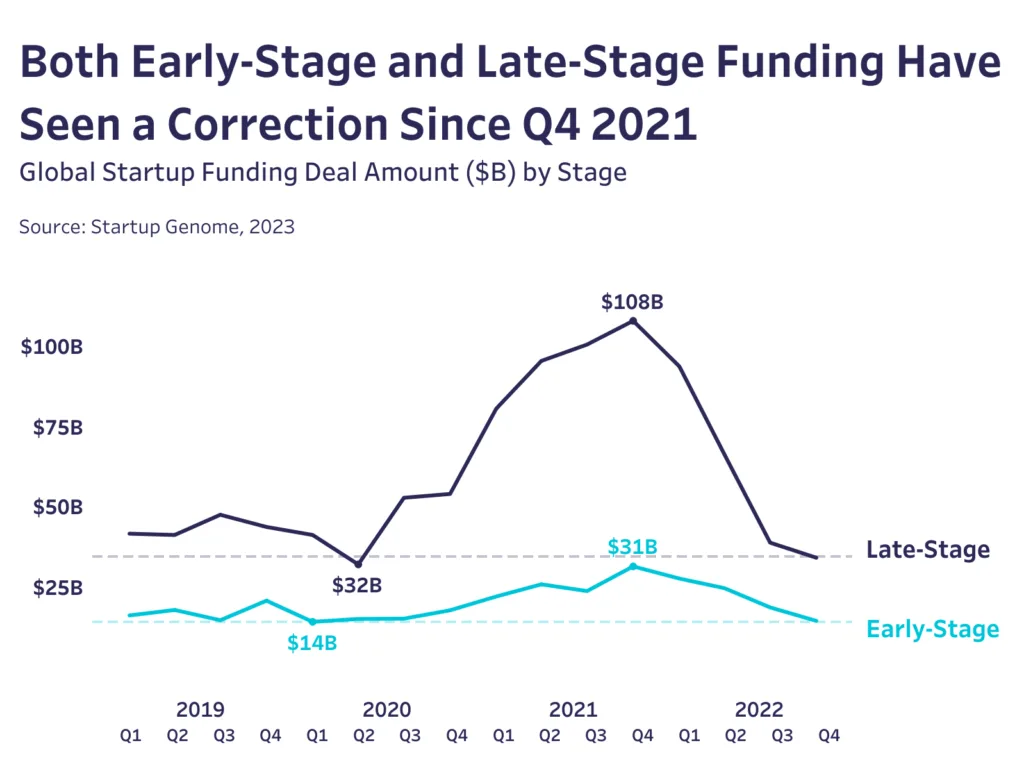It has been a tough year for venture capital (VC) firms, with several accelerators closing their doors.
Nonprofit programs like Venture for America, Byte Back, and Girls Who Code, once celebrated for their support of emerging talent, have suddenly gone dark. One of the most significant closures being that of the Roux Institute's Techstars Accelerator only two years after its launch.
The impact isn't confined to smaller investors. Even large corporations like Walmart and Intel have scaled back or shuttered their incubators, signaling that no one is immune from the current downturn.
So, what’s driving this wave of closures?
COVID Crash
Since 2008, the VC industry has seen relentless growth. For many, the COVID-19 pandemic brought unprecedented cash flow, as fiscal policies from 2020, designed to lift the economy, fueled a "growth at all costs" mindset.
Established accelerators suddenly found themselves up against institutional VCs and resources – a massive hurdle as capital dries up.
In a piece written for Forbes, Elizabeth Edwards, managing partner of H Venture Partners, explained how this “VC/Startup Recession” crippled the once-thriving ecosystem, even taking down Silicon Valley Bank with it. She adds that the industry must grapple with the fact that “the days of free money are over.”
“They didn’t cut headcount fast enough or tighten marketing budgets and margins quick enough. The sea change from rising interest rates, inflation, market saturation, consumer behavior shifts, and decreased funding swamped many startups last year.”
As the post-pandemic reality set in, this unsustainable model collided with economic headwinds like inflation and rising interest rates. Simultaneously, many companies over-hired during the pandemic, leaving them with excessive overhead, which resulted in the recent wave of layoffs.
All of these are indicators of where VC – and the U.S. economy – is headed.

VC Correction or Recession?
There has been ongoing debate about the meaning of recent fund slumps.
While the U.S. isn't officially in a recession, many see the markets quickly moving in that direction. On the other hand, some believe we will avoid a recession and see this downturn simply as a correction, or natural market drop, following the surge in pandemic-era funding.
Throughout 2024, many experts have predicted that the U.S. will fall short of a recession, as Wells Fargo economists predicted in January . In August, Goldman Sachs raised the chance of a U.S. recession within the next year from 15% to 25%, though they see limited risk overall.
Others, however, are concerned about deeper economic troubles.
"The stock market is more than 50 percent overvalued right now, the highest level of valuation since August 2000," Peter Berezin, Chief Global Strategist at BCA Research, told Top Traders Unplugged. He believes a recession is not only a possibility, but imminent. He argues tech investors should brace for tough times.
But while many are debating why the market is bearish (down), it might be more appropriate to refer to its status as “unusual.”
Crunchbase data shows that late-stage investing hit $23.8 billion in the third quarter (Q3) of 2024, up 28% from the previous quarter and 19% from last year. While early-stage funding was down 39% from Q2, but was still 16% higher year-over-year.
The biggest decline was in seed-stage investment, which dropped to $3.3 billion across 1,207 rounds, the lowest in years. However, as Crunchbase notes, round counts may rise as more deals are reported.
What’s Next?
The investment landscape is undergoing a fundamental shift, driven by new players, changing priorities, and outside forces. It’s impossible to see the future, but there are enough patterns to pick up on.
VC investors are now being forced to recalibrate goals and prioritize sustainable growth and profitability over rapid expansion. Previously popular sectors such as consumer products and e-commerce are increasingly seen as less worthy of attention.
Funds are also facing increased pressure to be more selective about which startups they back, with AI being one of the few exceptions.
For the foreseeable future, it seems best to brace for potential impact.



.png)
.png)
